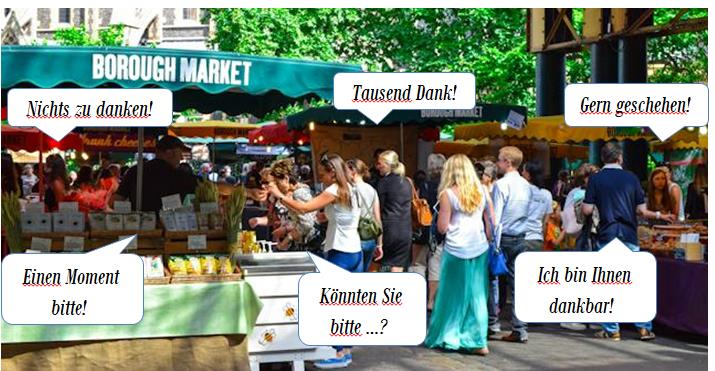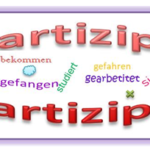In Germany, polite expressions are very important, so it would be good to master them right from the start. Practice out loud, the more you say out loud, the more confident you will become. It often happens to many people that when they come to a German-speaking area for the first time and need to speak German, they still decide to address themselves in English. Uh, what a defeat, after so many German lessons. Don’t allow yourself to get into that situation. Start with single words like thank you and please and short phrases like or Here you are! , it will be easier for you. Say them out loud.
Thank you for reading this post, don't forget to subscribe!CONTENTS
Expressions of gratitude
What is the difference between danken and sich bedanken
All varinats of bitte
What to say when someone thanks you
Apologizing
Expressions of gratitude
Danke! / Danke sehr!
A very important word, easy to remember, when you find yourself in a foreign country and say thank you in their language, it will certainly put a smile on people’s faces. Simply Danke! (Thank you!) is a universal word that most of us know, even those who have never studied German. If you want to be a little more polite, then use the expression: “Danke sehr!”( Thank you very much!)
And if we want to thank a certain person for something special, then we can say, for example:
Ich danke dir /Ihnen* ( für) … Thank you ( for)
We can return the thanks with:
Bitte! – Please!
Nichts zu danken! – You’re welcome!/ No need to thank me!
Gern Geschehen! – Gladly Done!
Kein Problem! – No problem!
*When using the polite form of you, you would use Ihnen, and for the informal form, you would use dir.
Dir is always used to address friends or people of your age, while Ihnen is used for strangers or people older than you. Ihnen is more distant or polite, while dir is more personal. Ihnen as formal personal pronoun is always capitalized.
Dir is the second-person singular dative personal pronoun.
For example:
“I bought you (dir) a ticket.”
Ihnen is the third person plural dative personal pronoun also the second person formal personal pronoun.
For example:
“I bought you (Ihnen) a ticket.”
In English, it’s the same.
Click on:
Grammar Contents
Vielen Dank! / Danke vielmals!
Thank you very much!
When we thank someone for a service that really means something to us, then we will use these phrases. If you want to be very grateful then we can express our gratitude with:
Herzlichen Dank! – Thank you from the bottom of my heart!
Schönen Dank! – Thank you very much!
Besten Dank! / Thousand Dank! – Many thanks! / Thousand thanks!
And the answer to this kind of thanks could be, for example: Gern geschehen! / Nichts zu danken! / Keine Ursache! (You’re welcome!)
Ich bin Ihnen/ dir dankbar! – I’m grateful to you!
Sehr nett von Ihnen/dir! – Very nice of you!
This is another important phrase if you want to be really grateful for a favor that is important to you. Suitable answers are for example:
Nicht der Rede wert! – Not worth mentioning!
Das habe ich doch gern gemacht! – I was happy to do that!/ I enjoyed doing that!
Das war doch selbstverständlich! – That goes without saying.
Na jugu Nemačke i u Austriji bi Vam odgovorili Passt scho(n)! Sto znači To je u redu.
A na severu Nemačke bi vam odgovorili Da nicht für!. U smilu: Za to se ne morate zahvaljivati.
They would answer you in the South of Germany and Austria with Passt scho(n)! which means It’s okay. And they would answer you Da nicht für! in the North of Germany. It means: You don’t have to thank for that.
Danke, gleichfalls!
When you want to say thank you and return good wishes then you will use this phrase. Someone wishes you a nice weekend or bon appetite, then you say: Danke, gleichfalls! , in English: Thank you, too!
Danke im Voraus.
When you want to say thank you in advance.
What is the difference between danken and sich bedanken
These two verbs have the same meaning, but their usage is slightly different, because the verb bedanken is reflexive, it must be always used with a reflexive pronoun.
For example:
Ich danke dir/ Ihnen (für …)
Ich bedanke mich bei dir/ bei Ihnen (für …)
This second phrase is a bit complicated to begin with, so we can only say:
Ich bedanke mich (ganz herzlich)! – I thank you from the bottom of my heart!
Possible responses are:
Gern geschehen!, Bitteschön!“, Bitte sehr!, Sehr gerne!.
These are common everyday responses. Even more polite responses are for example:
Immer wieder gerne!– Always happy to return!/ Always a pleasure!
Es war /ist mir ein Vergnügen! – It was/is a pleasure!
Nichts zu danken! – No thanks at all!/ No need to thank me!
All variants of bitte
Bitte is one of the first words you learn at the very beginning, and it means a request. But that is not its only use. Let’s see what all the variants are.
The first and most basic meaning is supplication/ request. Whatever help we ask for, even the smallest, must be from bitte.
Here are some examples in basic conversation:
Wiederholen Sie das bitte! Please repeat this!
Einen Moment / Augenblick bitte! – One moment, please!
need a short time to do something, we can often hear this phrase in service industries.
Sprechen Sie bitte langsamer! – Speak more slowly, please!
And if you want to be even more polite, then you can use phrases in subjunctive II. It is used to express great politeness:
Würden Sie bitte …? / Würdest du bitte …? – Would you please …?
A variant with the modal verb können can also be used:
Könnten Sie bitte …? Könntest du bitte …? – Could you please …?
If you don’t want to be too polite, then you can just say:
Können Sie bitte …? / Kannst du bitte …?. – Can you please …?
Then you can also use: Wie bitte? (I beg your pardon?/ Pardon?Sorry?) It is also used in situations when we do not understand something and with this phrase we ask the conversation partners to repeat what he said.
Bitte! also has the meaning Here you go!. When we give something to someone.
What to say when someone thanks you
There are many responses when someone thanks us, among other things there is bitte. Let’s see what we can answer when someone thanks us:
Bitte!
Bitte schön!
Bitte sehr!
We will use these three expressions, for casual, small service, for example it can be used in a restaurant, shop, when someone gives you something. But there are also the following variants:
Gern geschehen!– You’re welcome!
This phrase expresses true kindness. In northern Germany, the shorter form is in use: “Gerne!”.
Da nicht für! – Nothing for that!
This is used in the spoken language of northern Germany and actually comes from: “Dafür nicht!” meaning“Dafür musst du dich nicht bedanken!”(You don’t have to say thank you for that!).
Nichts zu danken! – You’re welcome!
Aber gerne (doch)! – corresponds to English I’m glad, (that I helped!)
In order not to repeat the same phrases, we can also say:
Keine Ursache! (No problem!) It can also be used in more formal situations.
Passt schon! – This expression is typical of Bavaria and Austria, but not only in response to “Thank” but generally means that you agree with something or that you don’t need to worry about something anymore.
Kein Problem! (No problem!) – In this situation it can be used as well as Passt schon! It is more often used in the south of Germany and in Austria.
Entschuldigung!
Click on:
Grammar Contents
Apologizing
Entschuldigung! is a neutral variant meaning “Excuse me.” If addressing someone formally, you can say “Entschuldigen Sie (bitte).” There is also an informal variant: “Entschuldige (bitte)!”
Tut mir leid! – I’m sorry!
Verzeihung! – Is a more formal variant of Entschuldigung! And it also has forms like: Verzeihen Sie bitte … i Verzeihe bitte! …
I hope you found this article helpful. If you have any questions or doubts, feel free to reach out, and I’ll be happy to assist you.
Bis zum nächsten Mal!:)
See more:


